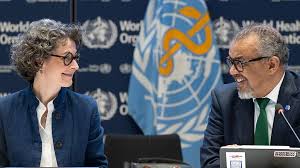A treaty to secure the world against Covid-like outbreaks.
At the height of the Covid pandemic in March 2021, more than 20 countries and international organisations issued a call for a treaty to protect the world from future outbreaks. In December that year, WHO members established the Intergovernmental Negotiating Body to draft an international instrument. Despite the toll taken by the pandemic across the world, countries were not on the same page over the details of the treaty’s two central tenets — exchange of scientific information and equitable allocation of medical preventives and antidotes. Countries from the developed world insisted on instant access to scientific data. Members of the Global South wanted such information sharing to be linked to the rapid provision of vaccines, diagnostics and drugs — an understandable demand given that vaccine distribution was skewed against low and middle-income countries (LMIC) for much of the pandemic. The slow and difficult negotiations concluded on Wednesday. The WHO’s Draft Pandemic Treaty, which will be presented at the World Health Assembly on May 19, is limited in scope compared to the pact proposed during the Covid years. Yet, it’s a significant step forward towards securing the world against Covid-like crises.
The treaty is founded on the “One Health” approach, which recognises that people’s health is closely connected to developments in the natural world. It asks countries to identify circumstances under which pathogens can jump from animals to humans, and take steps to reduce such risks. Such information, shared swiftly, can prevent and contain outbreaks. If approved by the World Health Assembly, the pact will be the first international covenant against spillover infections. Countries that share pathogen samples and genetic sequencing will get primacy in access to diagnostics, vaccines and therapeutics that are developed using this information. WHO members have also made some headway towards resolving vexed intellectual property issues related to drugs, diagnostics and vaccines by giving primacy to the public-interest principle. Such measures could help avoid situations such as those during the Covid pandemic, when some countries in the West could not compel vaccine manufacturers to share information on products they had developed using public-funded research. However, the treaty lacks an enforcement mechanism.
To begin with, the US participated in the deliberations on the pandemic treaty. But the final text was drafted without American participation. Its ratification by 191 countries is more than a symbolic victory for multilateralism — the treaty sends a strong message that the WHO has overcome the setback caused by the US’s withdrawal from the global health body.
